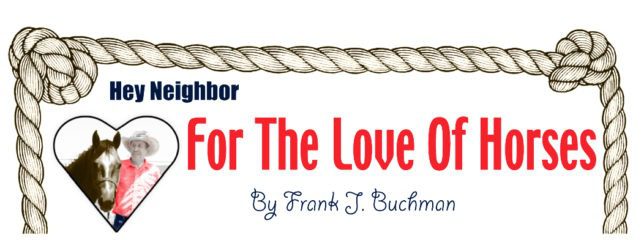“Is there a horse processing plant in operation?”
The question remains on the tongues of many as stories have been surfacing for months, actually more than two years, that a horse slaughter facility would again open in the United States.
Reports of higher prices being paid for “low end horses” at local auction facilities have brought added speculation that there was a processing plant in operation.
However, like it was a decade ago when one desired to find a public outlet for direct market to horse processing, exact information is “hush, hush,” and it seems to vary considerably from source to source.
From all contacts made, and most unanswered requests for information, there apparently are no horse processing facilities open at this time, and future of such remains continuingly controversial, and still speculative, to say the least.
A U.S. District Court judge in New Mexico most recently issued a temporary restraining order to block federal inspections at a proposed Missouri horse slaughter plant, sources that would respond have verified.
Another temporary restraining order preventing federal inspections at proposed horse slaughter facilities in New Mexico and Iowa, were issued in early August.
The orders were in response to a motion filed by the Humane Society of the United States and Front Range Equine Rescue, along with other horse protection organizations and several individuals.
The Iowa facility, Responsible Transportation of Sigourney, Iowa, indicated in mid-August it intended to focus on beef processing instead.
Animal welfare groups suing to stop a return to domestic horse slaughter on August 16 posted a nearly $500,000 bond to keep a temporary ban in effect.
The bond was put in place by the judge who issued to temporary restraining order on the New Mexico and Iowa facilities to cover potential losses by the slaughterhouses.

The owner, David Rains has already modified the plant to accept horses rather than the beef, pork, elk, bison and venison that Rains Natural Meats previously processed.
U.S. District Judge Christina Armijo issued the restraining order following a lawsuit by The Humane Society of the United States and other animal rights groups.
“While disappointing, this is really just the very first skirmish in what will inevitably be a long haul,” said Sue Wallis, chairman of the International Equine Business Association and a rancher in Wyoming.
“We have proven already by our progress to this point that the horse industry will not lay down and die. We will not quit. We will continue to fight to our dying breath to preserve our way of life, to protect our horses, to protect our lands, and our freedoms.”
Efforts to block horse slaughter in the United States have been ongoing since Congress lifted a ban on funding horse meat inspections. Groups such as The Humane Society of the United States, Front Range Equine Rescue, Marin Humane Society, Horses for Life Foundation have filed a lawsuit under the National Environmental Protection Act.
“We’ve won a temporary but life-saving reprieve for horses, and it’s good news indeed that the kill boxes in New Mexico and Iowa will be empty of horses in the weeks ahead,” said Wayne Pacelle, president and CEO of HSUS.
The parties suing USDA to stop horse slaughter before it can start up again in the U.S. agree with the government on one thing: they, too, want to get the court case they brought over as quickly as possible.
Bruce A. Wagman, attorney for the plaintiffs, has filed a motion with the U.S. District Court in New Mexico supporting the government’s request for an expedited hearing and briefing on the merits.
Wagman, who represents the Humane Society of the U.S. and several other animal welfare and horse rescue groups, has suggested a schedule that could put the issue in the hands of Federal District Court Judge M. Christina Armijo by October. 10.
Wagman still wants Armijo to rule on his motions to change the temporary restraining order that blocks companies with grants of inspection for horse meat packing from starting those operations unless permitted by the court and to reduce or eliminate the costly bond plaintiffs must come up with for the case to proceed.
. Currently, it also prohibits those companies from operating horse-slaughter businesses, even though the plaintiffs are not suing them. As long as USDA is barred from doing inspections, horses cannot be slaughtered for human consumption.
